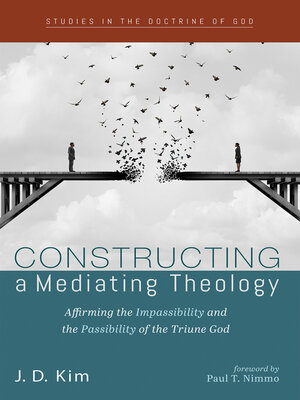Constructing a Mediating Theology
ebook ∣ Affirming the Impassibility and the Passibility of the Triune God · Studies in the Doctrine of God
By J. D. Kim

Sign up to save your library
With an OverDrive account, you can save your favorite libraries for at-a-glance information about availability. Find out more about OverDrive accounts.
Find this title in Libby, the library reading app by OverDrive.



Search for a digital library with this title
Title found at these libraries:
| Library Name | Distance |
|---|---|
| Loading... |
How does an almighty and all-loving God respond to his beloved human creatures, who are made in his image and yet implicated in sin and suffering? What is the origin of human suffering? Is it sin or the limitations of human beings? Is God moved by our suffering? If he sympathizes and co-suffers with us, can he deliver us out of our miseries? Thousands and perhaps millions of people have asked these questions and are searching desperately for their answers. Two major views have been advanced in the history of Christian theology to describe God's response to the suffering of the world: divine impassibility and divine passibility. More recently, a third, mediating position between impassibilism and passibilism has arisen which affirms both the impassibility and the passibility of God. This position can be identified as modified classical theism, an approach that grasps the perfect and relational nature of God. Following this mediating position, this book sets out its own constructive understanding of a mediating position with the help of a new way of understanding the way in which the eternal actions (and corresponding passions) of the divine persons condition one another—the dynamic reciprocity model.







